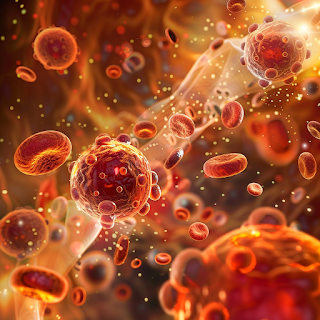The Distinct Benefits of Intermittent Fasting
Humans evolved to
eat regularly, but intermittent fasting encourages the body to use fat as
energy, leading to lower overall caloric consumption and leading to weight
loss. Furthermore, this approach increases anti-inflammatory ketones production
within the body.
Antioxidants help
promote cell repair and increase satiety hormones, providing relief to people
who tend to overindulge in late night snacking habits. But in order to reap its
full benefits, it's crucial that you do your research first.
Intermittent Fasting and Weight Loss
Intermittent
fasting (IF) has become an effective weight-loss strategy due to its ability to
help individuals reduce calorie consumption. Skipping meals and snacking less
will naturally help lower calorie intake; however, you must be wary when eating
as this could result in overeating and undo your efforts at weight loss.
If you're new to
intermittent fasting, take it slow and build it into your schedule gradually.
Start off by skipping breakfast for several days until your eating window
narrows and becomes set each day - then focus on eating healthy meals like
leafy greens, lean proteins, and unsaturated fats in order to stay full and
satisfied throughout your day.
Intermittent fasting offers another advantage of its own: improving insulin sensitivity. Not only can this be great for weight loss, but it can also protect against heart disease and diabetes by helping prevent excess insulin buildup that could result in elevated blood sugar levels, while simultaneously keeping your body more sensitive to using it effectively.
Research suggests
that intermittent fasting can also help increase your metabolism and help you
burn more fat, by switching the primary source of fuel in your body from
carbohydrates to fat. Furthermore, intermittent fasting has also been proven to
boost levels of Adiponectin hormone which promotes fat burning by discouraging
body stores from too much fat accumulation.
Intermittent fasting has also been proven to improve brain health and fight the effects of aging, such as by helping reduce inflammation, increasing cellular repair, and protecting against neurodegeneration.
According to researchers, intermittent
fasting may increase longevity in mice by inducing autophagy - the process that
recycles or disposes of old or damaged cells - and leading them to autophagy
for recycling purposes.
Though
intermittent fasting offers many health advantages, it is crucial that you
consult with your physician prior to beginning. Not everyone may benefit from
fasting intermittently; especially those who have certain health conditions or
are pregnant/ breastfeeding may need special advice before trying it.
Intermittent Fasting and Cardiovascular Health
Intermittent fasting may help improve certain risk factors associated with heart disease, such as blood pressure and cholesterol levels. There are various forms of intermittent fasting such as alternate-day fasting or time-restricted eating; but generally, the goal should be eating normally most days while occasionally restricting caloric intake for reduced caloric intake periods.
Such eating
patterns have been shown to decrease blood sugar and LDL ("bad")
cholesterol while improving body responses to insulin and decreasing overall
weight by way of reduced calorie consumption and weight reduction.
However,
intermittent fasting should not be undertaken without consulting with your
physician first. Some individuals with autoimmune diseases and low body weight
could experience dangerous side effects from sudden caloric restriction; these
people could enter starvation mode. Furthermore, those who have low blood sugar
should avoid going too long without eating and always consult their doc before
beginning any new diet plan.
There is growing research supporting the cardiovascular and metabolic health advantages of intermittent fasting. Unfortunately, most studies conducted have been on animal models; consequently, more human trials must take place to see if these results hold.
Early findings suggest IF can reduce inflammation in the body, providing
benefits to heart health. Fasting also increases levels of a hormone called
nitric oxide that lowers blood pressure while improving circulation throughout
the body.
Nutrients published a study in May 2019 demonstrating how an intermittent-fasting diet known as 5:2, consisting of eating regularly for five days each week before restricting caloric intake on two other days to 500-600 daily, can be effective for weight loss and cardiovascular health.
Researchers discovered that
restricting calories on fasting days increased nitric oxide production while
helping burn more fat; all while still providing plenty of nutrient-rich foods.
It was especially recommended for individuals struggling with insulin
resistance as this type of intermittent fasting helps adapt their bodies
sensitivity towards this hormone.
Intermittent Fasting and Brain Health
Intermittent
fasting has emerged as an innovative diet trend and can do much more for your
body than simply help with weight loss. According to research, intermittent
fasting may even promote brain health by switching the fuel source between
burning glucose for fuel and fat storage as the body produces ketones into its
bloodstream - this allows your brain access to ketones needed for energy use.
Ketones in the
bloodstream provide a rich source of fuel for brain function, helping improve
cognitive performance and lowering risks of degenerative disorders like
Alzheimer's. Furthermore, intermittent fasting (IF) has been found to suppress
systemic inflammation associated with neurological conditions. Studies suggest
IF may promote neurogenesis (the growth of new neurons) in regions like the
hippocampus which are important in memory retention and learning.
Animal and human
studies suggest that intermittent fasting may boost brain-derived neurotrophic
factor (BDNF). BDNF helps protect neurons' survival while encouraging new
synapses to form between neurons, shielding against stress as well as
diminishing plaques and tangles associated with Alzheimer's disease.
Animal studies
provide promising signs that intermittent fasting could provide benefits in
humans as well. One such study demonstrated how intermittent fasting can slow
cognitive decline among mice with Alzheimer-like symptoms while another study
concluded it improved performance in tests of learning and memory in mice.
Intermittent Fasting and Anti-aging
Intermittent
fasting may help promote weight loss and cardiovascular health benefits while
simultaneously slowing the aging process by stimulating hormesis and autophagy
processes.
Hormesis, or the
body's natural stress response, protects against disease by making cells less
prone to oxidative damage. Intermittent fasting has been proven to stimulate
this mechanism as well as increasing autophagy - the process by which old
proteins and damaged organelles are broken down by autophagy, helping your body
regenerate itself while extinguishing toxins accumulated over time and slow
down chronic illnesses such as Alzheimer's or cancer.
Intermittent
fasting has numerous health advantages, including improving insulin sensitivity
and lowering blood sugar levels - potentially helping prevent and treat
diabetes. Research also indicates that intermittent fasting may lower
triglyceride and cholesterol levels for greater heart health benefits.
Intermittent
fasting deprives the body of glucose, forcing it to burn fat instead for energy
production. This produces ketones which have been shown to promote weight loss,
improve brain function and even help reduce seizures in children. Furthermore,
intermittent fasting has other advantages, including strengthening immune
systems against chronic inflammation and oxidative stress as well as protecting
against chronic inflammation and other risks.
Animal studies
have demonstrated the benefits of intermittent fasting on cell aging and
degenerative conditions; for instance, one study demonstrated that mice who
fasted every other day lived 83% longer. Additionally, intermittent fasting has
been proven to delay fatty liver disease and hepatocellular carcinoma
development.
Final Thoughts
Intermittent
fasting comes in various forms and is tailored specifically to fit into your lifestyle.
One popular approach is the 5:2 diet, in which you consume normal meals on five
days and fast on two others; others use high-fat/low-carb eating patterns on
most days before switching back to more balanced meal plans on non-fasting
days.
👀If you are contemplating intermittent fasting, it's advisable to first consult a healthcare professional. Ultimately, have your doctor conduct an exam and review your health history in order to assess any underlying issues which would make fasting dangerous for you.
👉This post may contain affiliate links. As an Amazon Associate and member of other affiliate programs, we earn from qualifying purchases.👈












Comments
Post a Comment